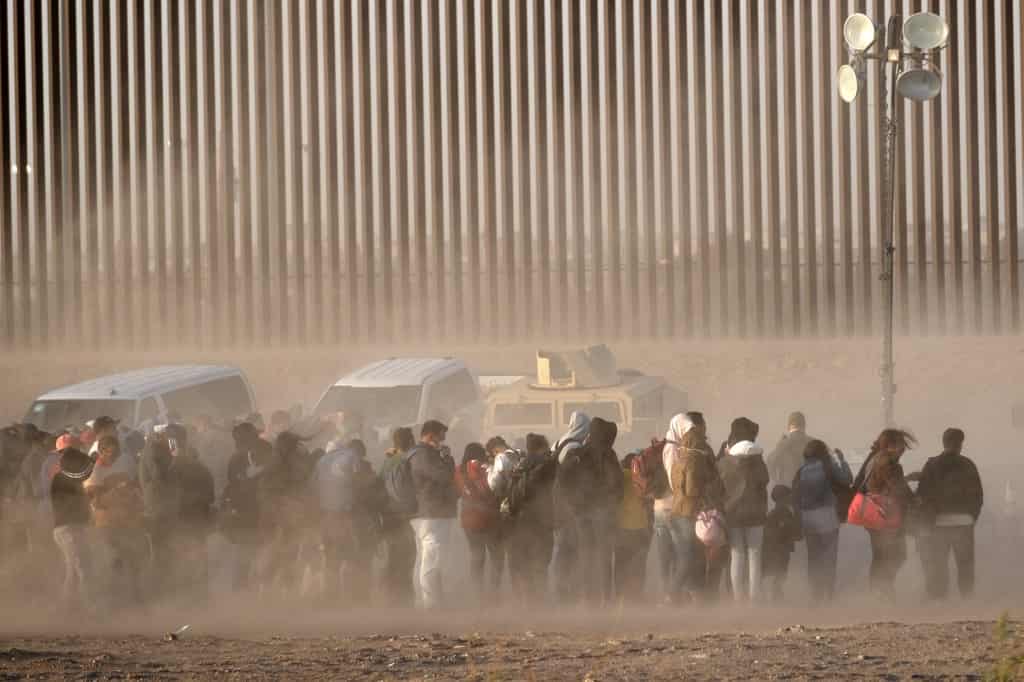Luisa thought she was entering an office to regularize her stay in Mexico, but suddenly found herself detained. The death of 39 migrants in one of these facilities revealed yet another outrage against those seeking to reach the United States.
“That is a dungeon, a detention center, as if you were a criminal,” said Venezuelan Luisa Jimenez in Ciudad Juarez, on the border with the United States.
She is referring to the facility where she was detained months ago in Tuxtla Gutiérrez (Chiapas, south), where, according to her, she was taken with the promise that she would obtain a permit to stay in Mexico before applying for asylum in the United States. In reality she was notified that she had to leave the country.
“It’s a filthy place,” adds the 56-year-old woman, describing conditions similar to those at the Ciudad Juarez center, where a fire killed 39 migrants held in a cell that – according to the prosecution – no agent even tried to open.
That tragedy was triggered last Monday night when a migrant set fire to mattresses in the midst of a protest over possible deportation, according to authorities.
Several had been intercepted in streets where they were asking for money, selling items or cleaning cars, also with the offer of residency permits.
“There are no fire extinguishers, smoke detectors. There are cameras,” says Nicaraguan Moises Chavez, 41, who just a week ago was held in the same dungeon, a foul-smelling place of 84 square meters where agents treat migrants with disdain, according to his description.
It was the second time he had been taken to this unit of the National Migration Institute (INM), in the eye of the storm for the incident in which 18 Guatemalans, 7 Salvadorans, 7 Venezuelans, 6 Hondurans and a Colombian died.
On suspicion of homicide, the justice system issued arrest warrants for three INM officials, two private guards and the migrant who allegedly set the fire.
Prisoner’s treatment
Images from the camera to which Moisés alludes revealed the moment when the fire started, without the INM agents or the private guards evacuating the 68 detainees.
On paper, these types of facilities are service and lodging centers for foreigners who cannot prove their legal status in Mexico.
But “they treat you like a prisoner there,” says Venezuelan Yusleidy García, who was detained at the Ciudad Juárez Provisional Detention Center. Women and men are confined in separate facilities.
“I spent the night in the cold, they take away all your belongings. In the cell where I was there were 150 people” of various nationalities, she complains.
These conditions contrast with the rules for these places issued by the government in 2012, which order adequate food, hygiene protocols, as well as “safeguarding and protection of the people and the building” in case of riots.
Migrants are not allowed to stay more than seven days in the temporary shelters, such as the one in the fire.
Some are transferred to immigration stations, where their stay should not exceed 15 days to resolve their situation and receive legal assistance, and they may even be deported.
Although they are taken with the promise of residency permits, migrants consulted say that in reality they receive notices to leave Mexico within 10 to 30 days.
They are not shelters
According to Amnesty International, in 2022, authorities detained at least 318,660 people in migration facilities and expelled some 106,000, including minors.
This mechanism, which has caused innumerable harms, including torture and cruel, inhuman and degrading treatment, to thousands” of migrants, the organization denounced after the fire.
“Migration stations are not ‘shelters’, but detention centers, and people are not ‘housed’ there, but deprived of their freedom,” the NGO charged, alluding to statements made by Mexican President Andrés Manuel López Obrador.
In the wake of the catastrophe, the United Nations office in Mexico recalled that the Global Compact for Safe, Orderly and Regular Migration outlaws arbitrary detentions and calls for legal detentions to last as short as possible.
Other international standards call for alternatives to arrest, the UN said.
Luisa was detained for two days after a long journey in which she says she slept next to migrants’ corpses in the Darien jungle between Colombia and Panama and ate what others threw away.
Outraged at having ended up in jail when she was only seeking a permit, she confronted an agent with a question, “Is it a crime to migrate?” “He turned his back on me and walked away,” she recalls.






